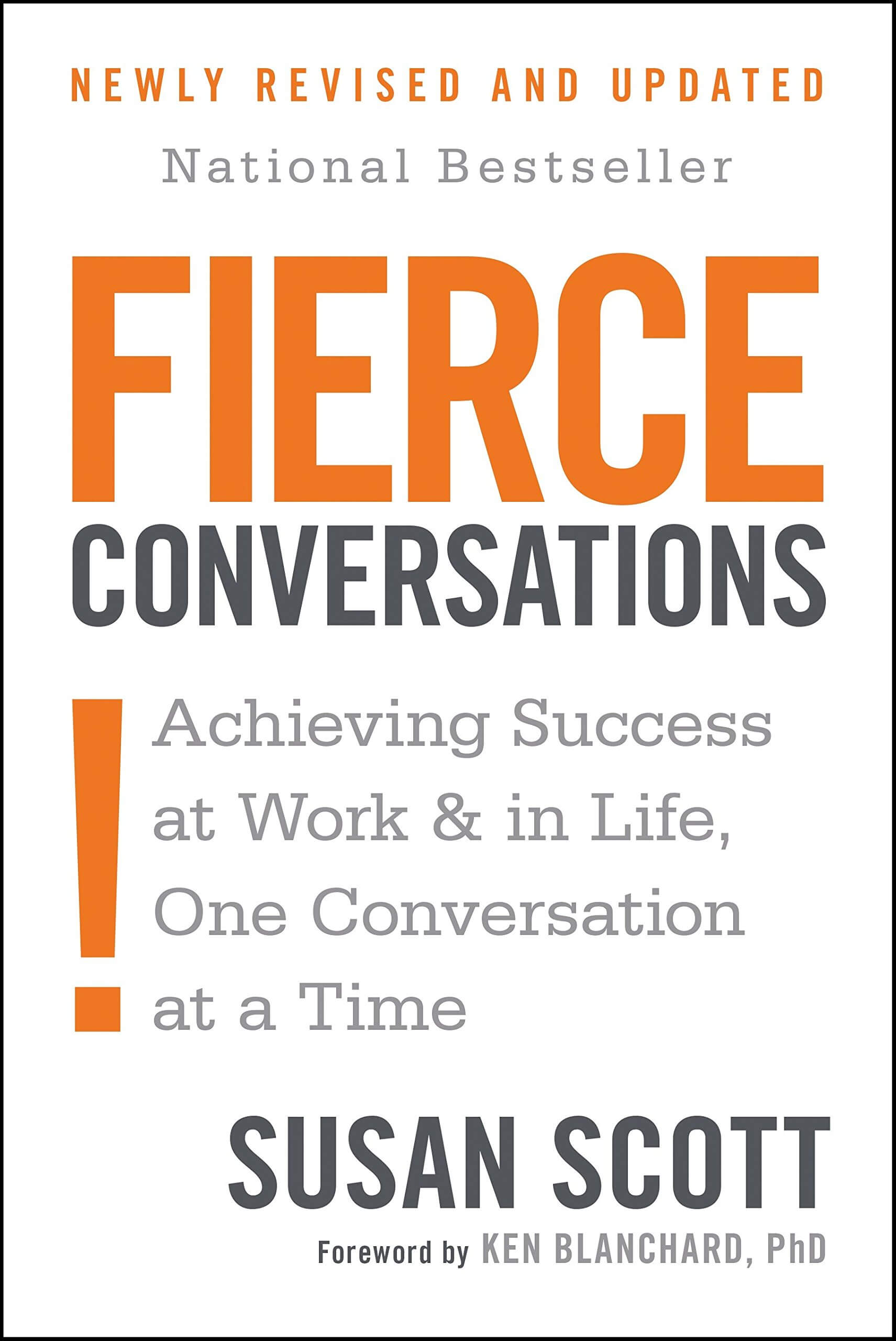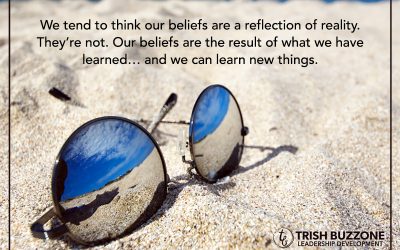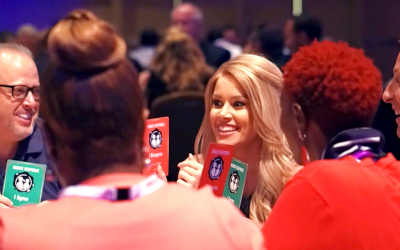I’ve been thinking about the emotional energy we exchange in our conversations and how this energy affects our relationships. That cause and effect reminded me of something I read in a book by Susan Scott called Fierce Conversations: “The conversation is not ABOUT the relationship. The conversation IS the relationship.”
That was such an ‘aha!’ moment for me. When we get hung up on what we’re talking about, we miss that the engagement itself is the relationship, and that these conversations affect the flow of how we relate, how we understand, and how we connect with each other.
Scott describes how our conversations transfer positive or negative emotional energy using the illustration of a speedboat creating a wake. Every conversation creates an emotional wake, a flow of positive or negative emotional energy. Afterward, we feel something, which Scott calls “afterglow, aftermath, or aftertaste.” While we may not always connect those feelings with that conversation, we carry these feelings into other interactions.
So, how do we enrich our relationships through our conversations, sharing positive energy, even when the conversation is about a difficult or touchy subject? This begins with reminding ourselves, regularly, that the conversation is the relationship. As we apply that idea, it naturally causes us to take responsibility for the emotional energy we’re transferring. Here are three tools that have helped me with that habit, and I know they will help you too.
The first tool is to practice the conversation before the conversation. Because it’s so easy to be misunderstood and unintentionally hurtful, especially when there’s upset or confusion, it helps to have a conversation with ourselves before we have a conversation with someone else. For me, that begins with asking, “How am I enriching this relationship?” and following that up with “How can I do so with this conversation?” Every conversation will have a crossroads, a point at which everyone is better, someone is better, or no one is better, because of that conversation. When I take responsibility for helping everyone in the conversation be better, I am more aware how that conversation is helping or hurting the relationship.
That awareness is the next tool to create that positive wake. It asks the questions, “What am I really saying to the other person?” and “What are they really wanting to say to me?” These questions cause us to listen with more intention, shifting our focus to include both what we’re wanting in the conversation and what the other person wants or needs. In unpacking this idea, Scott refers back to the speedboat. The pilot should mind their speed, not because they don’t have the right to pilot the boat where they please, but because their speed will affect other boats. If we speed through a No Wake Zone, we may cause damage, and when we speed through a conversation without intentional awareness, we may transfer negative emotional energy.
Third, when we take responsibility for the emotional wake in our conversations, we learn to stop making loaded statements. These include blaming, name calling, assigning labels, sarcasm, exaggerations like “this ruins everything,” or accusations such as “you always do that” or “you’re saying this, but what you really mean is…”
When we avoid these loaded statements and, instead, use connective, inviting language that shows a desire to understand and appreciate the other person, we create a positive flow of energy, even in the midst of a difficult conversation. This positive wake will continue to ripple out, flowing between that conversation and the next, building the foundation for better, healthier relationships.
A version of this article was originally published in the April 2021 issue of Sandpoint Living Local / Coeur d’Alene Living Local.
Leading Through a Crisis: Chaos, Clear Thinking, and Compassion Fatigue
Leading Through a Crisis: Chaos, Clear Thinking, and Compassion Fatigue How to protect our minds when crisis threatens to replace what we know with what we see Two months ago, none of us knew 2020 would be the year of COVID-19. Yet here we are. Life in the...
Let’s Work Together to Slow the Spread
The world has changed a lot over the past couple of weeks. And more changes are coming every day. Like you, I want to have good information, and I want to know how I can help. Watching this video helped me understand why governments around the world, local...
The Power of Connection
There’s a popular maxim in business that argues “It’s not what you know, it’s who you know.” While I believe both what you know and who you know are important, we all understand the point of that truism: When it comes to success in any endeavor,...
Game of Leaders: There is No Throne Because Everyone Wins
Despite what some memorable characters from a certain hugely popular TV program would say, leadership is not about vanquishing everyone around you to earn the right to cast down edicts from atop an imposing throne. Leadership is nurtured within a person...
Turning Thirty
Turning Thirty Guest Blog by Ashley Hofecker Real talk: My younger self thought I’d “have it all figured out” by the time my 30th birthday rolled around. I’d have traveled so many places, done so many things, and earned so many titles, personally...
Being Present in a Spirit of Harmony
Remember family road trips as a kid? Music and games and junk food. And, inevitably, arguing with your siblings in the back seat. Over toys, over space… over nothing. At some point, mom or dad turned around in their seat, threatening: “You’re pushing your...









0 Comments